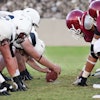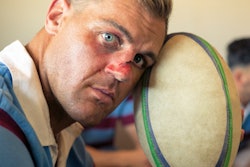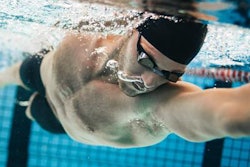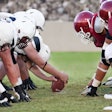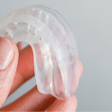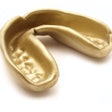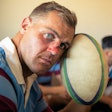
Elite athletes who changed their oral health habits to include using prescription-strength fluoride toothpaste and floss picks to clean between their teeth improved their sports performance in a recent study. The findings were published on June 18 in BMJ Open Sport & Exercise Medicine.
Athletes who implemented behavioral change programs improved their oral health habits and significantly reduced effects associated with negative performance, the authors wrote.
The behavioral change model "was associated with an increase in athlete oral health knowledge, enhanced oral health behavior, a reduction in self-reported performance impacts, and high participant retention," wrote the group, led by Julie Gallagher, PhD, of the Centre for Oral Health and Performance at University College London's Eastman Dental Institute in the U.K.
Past evidence has shown that 49% of athletes have dental caries and 77% have gingival inflammation. Some people have suggested that athletes' dental issues may be partially due to their consumption of sports drinks, energy bars, and energy gels, which boost acid erosion and tooth decay risk.
For the current study, the researchers recruited 62 athletes from Great Britain's Olympic rowing and cycling teams and the Gloucester Rugby team, who were asked to watch a 10-minute presentation that focused on building motivation to improve oral health. They also watched three 90-second informational films featuring Great Britain rower Zak Lee-Green that aimed to increase oral health knowledge and skills to perform optimal oral health behavior.
The athletes underwent oral health screenings and were given customized advice and toolkits that contained a manual toothbrush, prescription fluoride toothpaste, and floss picks. They were instructed to brush for a minimum of two minutes before training and before bed. After the four-month study, they answered the Oslo Sports Trauma Research Center (OSTRC) Overuse Injury Questionnaire, which asked about how oral health affected their sports participation, training volume, and sporting performance, as well as the extent of the oral pain they experienced, according to the authors.
The athletes' use of prescription-strength fluoride toothpaste increased from about 13% to approximately 80%. In addition, their use of floss picks at least two to three times each week rose from about 16% to approximately 34%, according to the findings.
After they changed their oral health behaviors, the OSTRC median score across athletes went from 8.73 to 2.73. This indicated a reduction in sports performance issues related to oral health, Gallagher and colleagues noted.
The study had some limitations, including the lack of a control group. The researchers planned for a randomized controlled trial, but coaches and elite team managers didn't believe monitoring of a nonintervention group to be the best use of the athletes' time, the authors wrote.
These types of behavioral change models are effective with elite athletes because they already are highly disciplined and have grown accustomed to following strict routines.
"Oral health screening and oral health promotion programs can be implemented in elite athlete teams," they wrote.


